After a good nights sleep, a much needed Lanvin shower (can you believe it!!??)...
and delicious breakfast at Pastelaria Suica overlooking Rossio Square...
we set out to discover Lisbon this time on Tram #28, a vintage tram that has been in operation since 1873 and presently comprises five urban lines...
Take this if you want an overview of the city but be wary that the line to get on may be long and once on, you may need to stand as this is a very popular way to get around...The vintage tram is fun if, you get a view that is, and takes passengers on a scenic trip from the city center at sea level up through the narrow maze of streets towards St. George Castle which was our first stop of the day.
Saint George's Castle or, Castle of São Jorge, can be seen
from almost everywhere in the city and is located in Alfama, Lisbon's most
emblematic quarter and one of the most rewarding for walkers and photographers
thanks to its medieval alleys and fantastic views...
The oldest parts of the castle date from the 6th century, when it was fortified by the Romans, Visigoths, and eventually the Moors. It served as a Moorish royal residence until Portugal's first king Afonso Henriques captured it in 1147 with the help of northern European crusaders on their way to the Holy Land. It was then dedicated to St. George, the patron saint of England, commemorating the Anglo-Portuguese pact dating from 1371, and became the royal palace until another one was built in today's Comercio Square.
It is now an oasis of peace, but just past the main gate is a statue of King Afonso Henriques and a series of cannons, reminders of the castle's original purpose...
What remains of the Alcaçovas Palace where medieval kings lived, is a stone building now housing a restaurant and round the back, a small archaeological museum in three underground chambers (including the one where Vasco da Gama was once received by King Manuel).
Most of the castle was destroyed over the years, especially in the Great Earthquake, but still includes a long extension of walls and 18 towers all of which we climed...
That's Phil across the tower...
and that's me and Jacob!
We climbed the towers and walk along the ramparts for the most breathtaking views of the city...
Relaxed in the gardens where peacocks, geese and ducks strut around...
Took in the breathtaking views from every possible angle...
and grabbed some lunch before taking our leave...Yes, these are sardines and they were delicious!
on to the next stop...
During our walk down, we came across Conserveira de Lisboa, a canned food shop that looked more like a candy store with its bright colors and bustling vibe...
Conserveira de Lisboa was first known as Mercearia do Minho and was established in 1930, here we be bought canned sardines, octopus and squid...
Next on the list was Belém, the last Lisbon neighborhood before the beach side suburbs and located where the river meets the Atlantic. Belém is home to the city’s most famous monuments and museums such as Jerónimos Monastery, one of the most prominent monuments of the Manueline-style architecture in Lisbon -classified in 1983 as a UNESCO World Heritage Site- along with the nearby Tower of Belém ...
Across from Jeronimos Monastery, we took an underpass to the Discoveries Monument, built on the north bank of the Tagus River in 1960 to commemorate the 500th anniversary of the death of Prince Henry the Navigator...
It represents a three-sailed ship ready to depart, with sculptures of important historical figures such as King Manuel I carrying an armillary sphere, poet Camões holding verses from The Lusiads, Vasco da Gama, Magellan, Cabral, and several other notable Portuguese explorers, crusaders, monks, cartographers, and cosmographers, following Prince Henry the Navigator at the prow holding a small vessel. The only female is queen Felipa of Lancaster, mother of Henry the navigator, the brain of the discoveries...
Inside is an exhibition space with temporary exhibits, an interesting film about the city of Lisbon, and an elevator that takes visitors to the top for some bird's-eye views of Belem and its monuments...

The pavement in front of the monument is decorated with a mosaic that was offered by the South African government in 1960, representing a compass with the map of the world charting the routes taken by the Portuguese explorers.
 Walking back, we took time to admire the Belem cultural and arts center originally controversial for its striking modern architecture next to the historical Jeronimos Monastery. The Belem Cultural Center or, CCB, was built to host Portugal's presidency of the European Union in 1992 and has since become the host of numerous international exhibitions, cultural events and congresses, and is also an arts complex with the city's largest auditorium...
Walking back, we took time to admire the Belem cultural and arts center originally controversial for its striking modern architecture next to the historical Jeronimos Monastery. The Belem Cultural Center or, CCB, was built to host Portugal's presidency of the European Union in 1992 and has since become the host of numerous international exhibitions, cultural events and congresses, and is also an arts complex with the city's largest auditorium...
Wow, that was a lot but it didn't stop us! Naturally, in order to keep going, we needed a snack and headed to the famous Pasteis de Belem for their famous Pasteis de Belém or, Pasteis de nata, Portugal's creamy custard cups wrapped in a crackly pastry. Although they are served in every cafe throughout Portugal, trust me when I say that this is the only place to get them warm, crunchy, creamy and delicious! 

Just what we needed to keep our energy up and ready to go we made our way home to change and set out for the night...
We tried to catch Fado at A Tasca do Chico, the Fado house in the middle of the Bairro Alto district that Anthony Bourdain recommended on "No Reservations" but they didn't have it on this particular night so, we posed for pictures...
and went to this place the name of which I don't recall but will add if it comes to me....
All in all another amazing day in Lisbon but it was not over until we walked down this hill to get back to the comforts of our hotel...Needless to say my skinny jeans fit me better than ever!


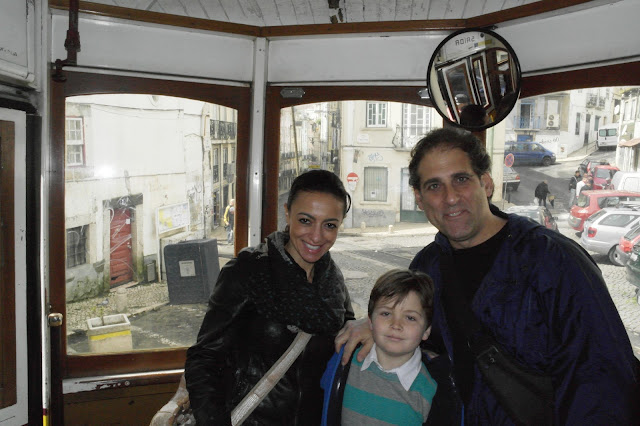





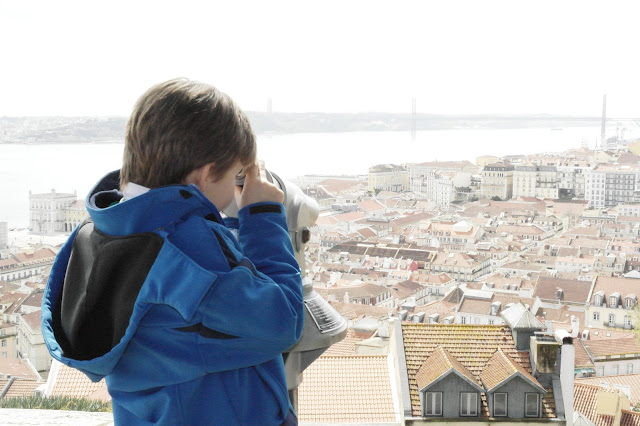













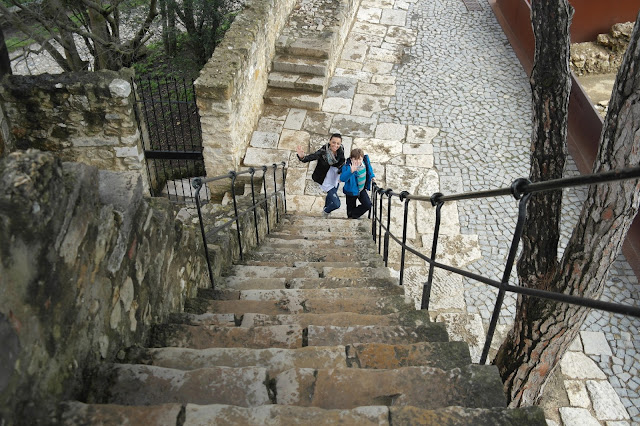
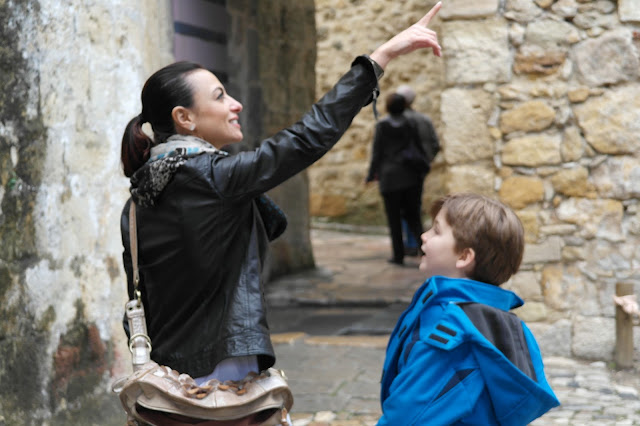
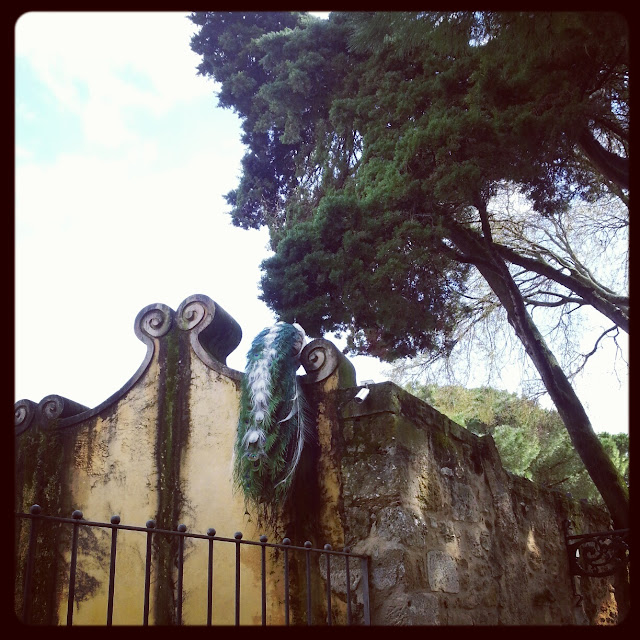







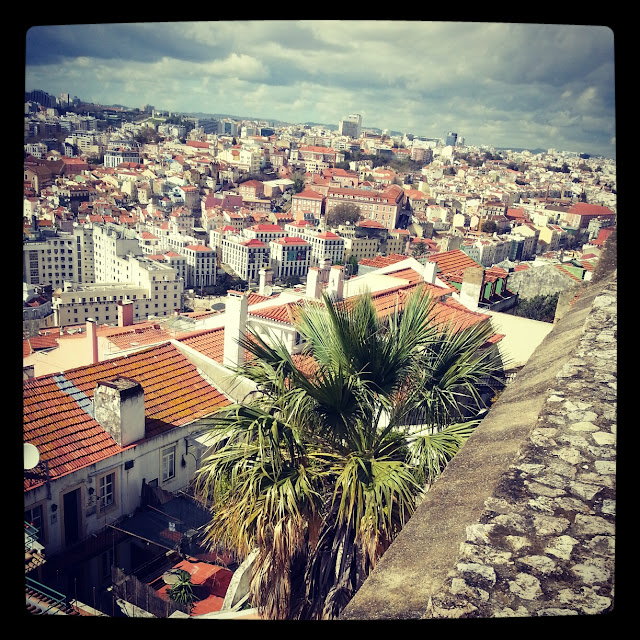


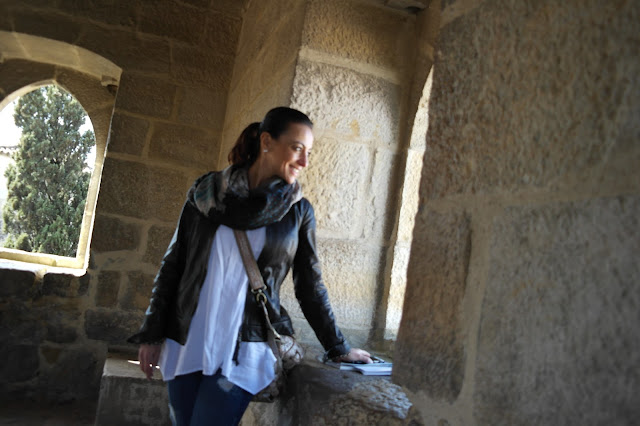


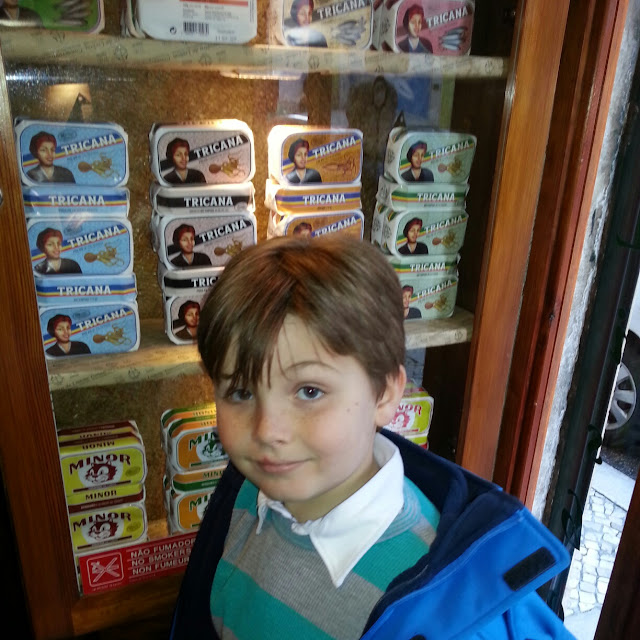




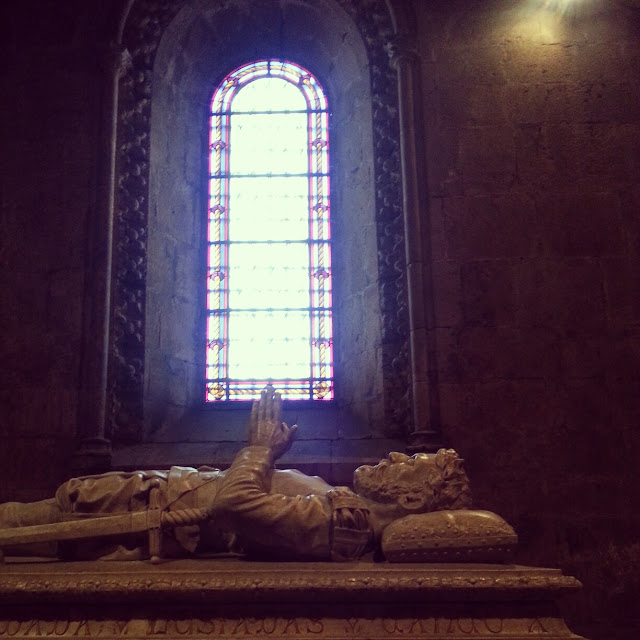









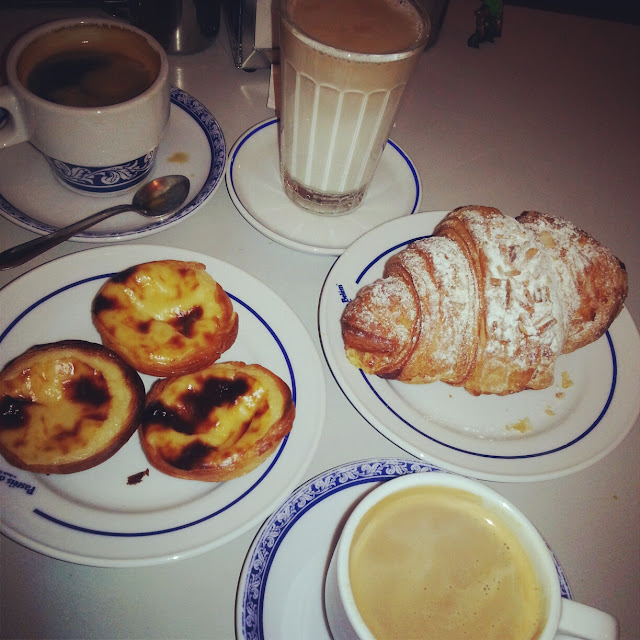
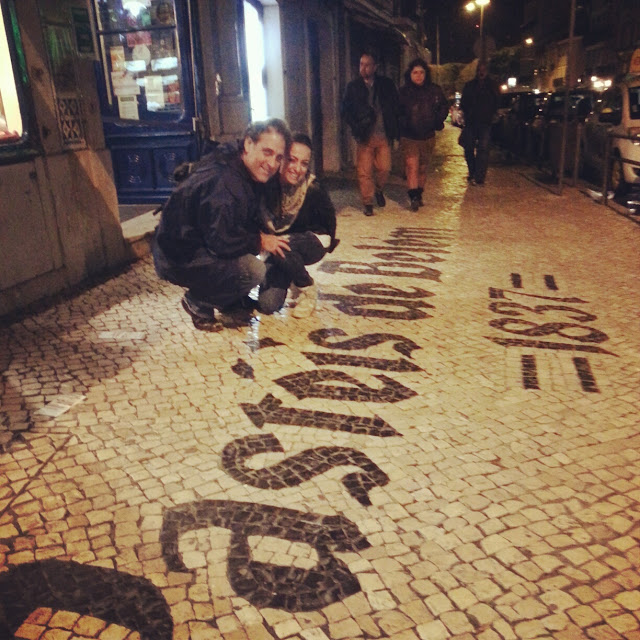





No comments:
Post a Comment
Would love to hear from you!